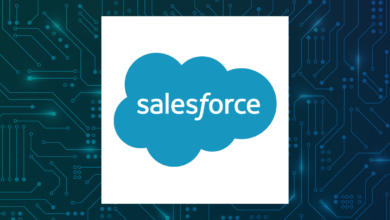Microsoft Announces a “Copilot-First” CCaaS Solution: The Dynamics 365 Contact Center

Microsoft has launched a “standalone” CCaaS solution: the Dynamics 365 Contact Center.
Generally available on July 1, 2024, the solution connects to a business’s existing CRM system and applies generative AI to “every” customer engagement channel.
In doing so, Microsoft labels its solution “Copilot-first”, with GenAI-fuelled use cases that support customers, agents, and other contact center users.
But it’s not all a Copilot story. Microsoft has added IVR tech from Nuance, intelligent unified routing, and real-time reporting to the platform.
Moreover, as Jeff Comstock, CVP of Dynamics 365 Customer Service, writes in a Dynamics blog post:
Dynamics 365 Contact Center is built natively on the Microsoft cloud to deliver extensive scalability and reliability across voice and digital channels, and routing, while at the same time allowing organizations to retain their existing investments in CRM or custom apps.
Yet, unsurprisingly, the emphasis is once again on Copilot and generative AI, with the tech giant promising to infuse the latter across every contact center workflow.
That goes beyond communication channels to self-service, agent experience, and triaging – with the overarching goal of bolstering customer, employee, and business outcomes.
Native GenAI Capabilities for Contact Center Agents
When a customer contact reaches the agent desktop, the Dynamics 365 Contact Center presents a “360-degree view of the customer”. GenAI bolsters that agent view with live voice transcriptions and sentiment insights.
Meanwhile, real-time translation is supported across digital channels, and conversation summaries are available to streamline agent wrap time.
The latter is an example of how GenAI automates agent tasks across the platform. Others include auto-drafting customer emails and generating suggested responses across other channels.
For these three use cases, agents can leverage Copilot, which lives natively on the platform.
Meanwhile, agents can also utilize the virtual assistant to ask questions and receive answers grounded by the business’s knowledge sources.
Enthused by this concept, end-user Stephen Currie, VP of Operations at Microsoft, said:
For our support teams, efficient problem-solving and smooth customer interactions are key to delivering exceptional service. With Dynamics 365 Contact Center, and by leveraging its AI capabilities, we see a future where our support teams will deliver that level of service every day.
Many service teams will already leverage these AI capabilities through Copilot for Service.
Indeed, Microsoft’s own customer service team leverages the Copilot. Since then, it has recorded a 12 percent decrease in average handling time (AHT) and a 13 percent reduction in cases where agents need peer assistance to find a resolution.
Native GenAI Capabilities for Other Critical Contact Center Stakeholders
Microsoft claims that GenAI will help it offer “next-generation” self-service to customers via the Dynamics 365 Contact Center.
To do so, the tech giant serves up pre-integrated, customer-facing Copilots across voice and all digital channels.
These combine Nuance technology and Microsoft Copilot’s studio no-/low-code designer and – according to Microsoft – will deliver context-aware, personalized, and rich self-serve experiences.
Meanwhile, Microsoft also aims to help contact center managers and supervisors enhance operational efficiency through GenAI-augmented, real-time reporting.
GenAI will help service teams proactively detect issues, allowing contact centers to improve critical KPIs, adapt quickly, and bolster critical metrics.
The Expert Take: Getting GenAI from the Source Is Significant
Since the launch of ChatGPT, every contact center vendor has bolted GenAI onto their CCaaS platforms, consuming LLMs from OpenAI, Google, Anthropic, and others.
Yet, thanks to its special relationship with OpenAI, Microsoft has built ChatGPT into the DNA of its product, and – according to Simon Harrison, Founder & CEO of Actionary – getting GenAI from the source is “BIG”, especially in terms of economies of scale.
Moreover, Harrison talked enthusiastically about the platform as a whole. “A Copilot-first contact center solution will introduce groundbreaking agent empowerment capabilities,” he said.
Agents will have a personal mentor, get support with vertical-specific language automated responses, and enjoy the benefits of self-review or learning. It will drive new levels of productivity and deliver more complete customer experiences.
That “vertical-specific” language is particularly noteworthy, as Copilots will understand the industry terms and acronyms and deliver fresh insight.
In addition, the idea of a “personal mentor” is exciting from an agent empowerment perspective, as the rep could ask Copilot: what could I have done better after every call? That enables coaching after every customer engagement.
Finally, it’s fascinating to consider how the Dynamics 365 Contact Center will allow service teams to test and implement new Copilot use cases, which they can then spread across the business.
That may expand beyond the traditional contact center boundaries, so external knowledge workers and informal agents may benefit from the virtual assistant, enabling more consistent experiences.
A Big Step Into CCaaS, But Not a Giant Leap
Despite all its potential, the Dynamics 365 Contact Center will – at launch – be a CCaaS lite offering. Indeed, its announcement blog doesn’t touch upon journey orchestration, workforce engagement management (WEM), knowledge management, etc.
In this sense, it’s perhaps ideal for Microsoft-centric customers looking to expand their base capabilities beyond Dynamics 365 for Customer Service.
But, if Microsoft really wants to grab the CCaaS bull by its horns and win enterprise business, it will likely have to accelerate the innovation cycle.
That said, it may not want to do so. After all, the announcement draws many parallels to the Salesforce Contact Center, which essentially layers routing and reporting over Service Cloud.
With this, Salesforce aims to attract more midmarket businesses to consider it their core contact center provider – without directly challenging enterprise CCaaS leaders. Those include partners such as NICE, Genesys, AWS, and Five9.
That move hinted at Salesforce’s reluctance to build out the massive voice infrastructure and handle all the complexity of the contact center.
Since then, Salesforce has formed tighter bonds with numerous CCaaS stalwarts, especially Genesys and AWS.
Microsoft may follow a similar path, or it could use the Dynamics 365 Contact Center as the foundation for something much bigger. Only time will tell.



